"Economic freedom creates prosperity for all."
Author: Brian Armstrong
Compiled by: Deep Tide TechFlow
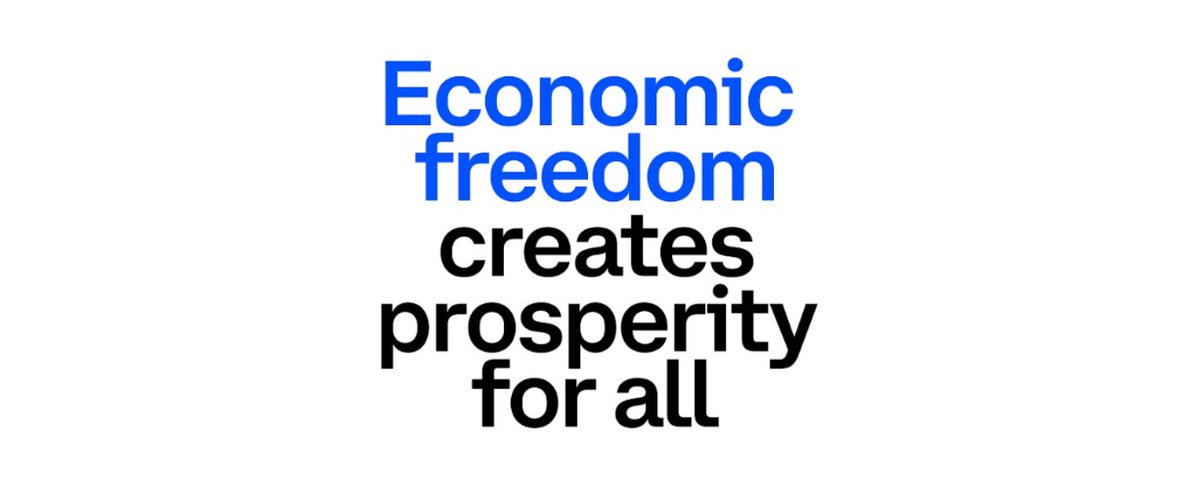
In 2024, the American public expressed their support for economic freedom and free markets through the ballot, re-electing Donald Trump as president. Canada also seems to be moving in a similar direction, led by conservative politician Pierre Poilievre. In 2023, Argentina's President Milei and Latin America's President Bukele are also promoting this trend. In the UK, Starmer is trying to attract more voters by supporting policies for technology and innovation; meanwhile, in Germany, due to fiscal policy missteps leading to an economic slowdown, Scholz is likely to be voted out of office in the near future.
We are at a critical turning point in history: the world is gradually recognizing the problems that some social forms may bring, which have caused the greatest harm to the groups they claim to protect, and there are few successful examples in practice. However, some countries are still heading in the wrong direction.
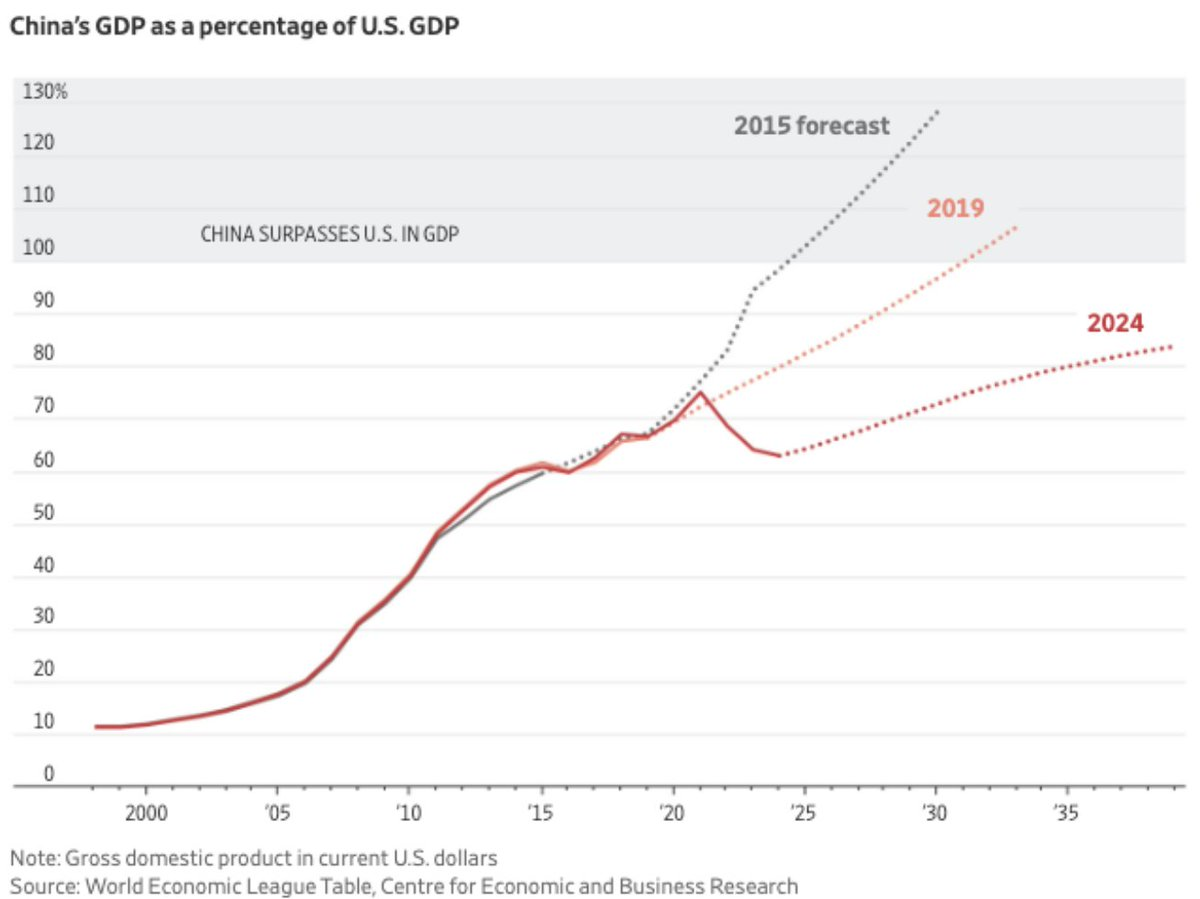
The driving force behind economic growth comes from free markets, deregulation, small government, and technological innovation. These factors not only lower prices but also create more job opportunities, increase tax revenues, and improve healthcare services. It has been proven that the effective way to escape poverty and achieve prosperity for all is not socialism, but free market capitalism. If other G20 countries wish to share in the fruits of economic prosperity, they should align with this growing trend of economic freedom and free markets.
At Coinbase, we are always committed to promoting the development of global economic freedom. Just like freedom of speech or religious freedom, economic freedom is the cornerstone of a prosperous society and the progress of civilization. We believe that cryptocurrency is the key technology driving global economic freedom.
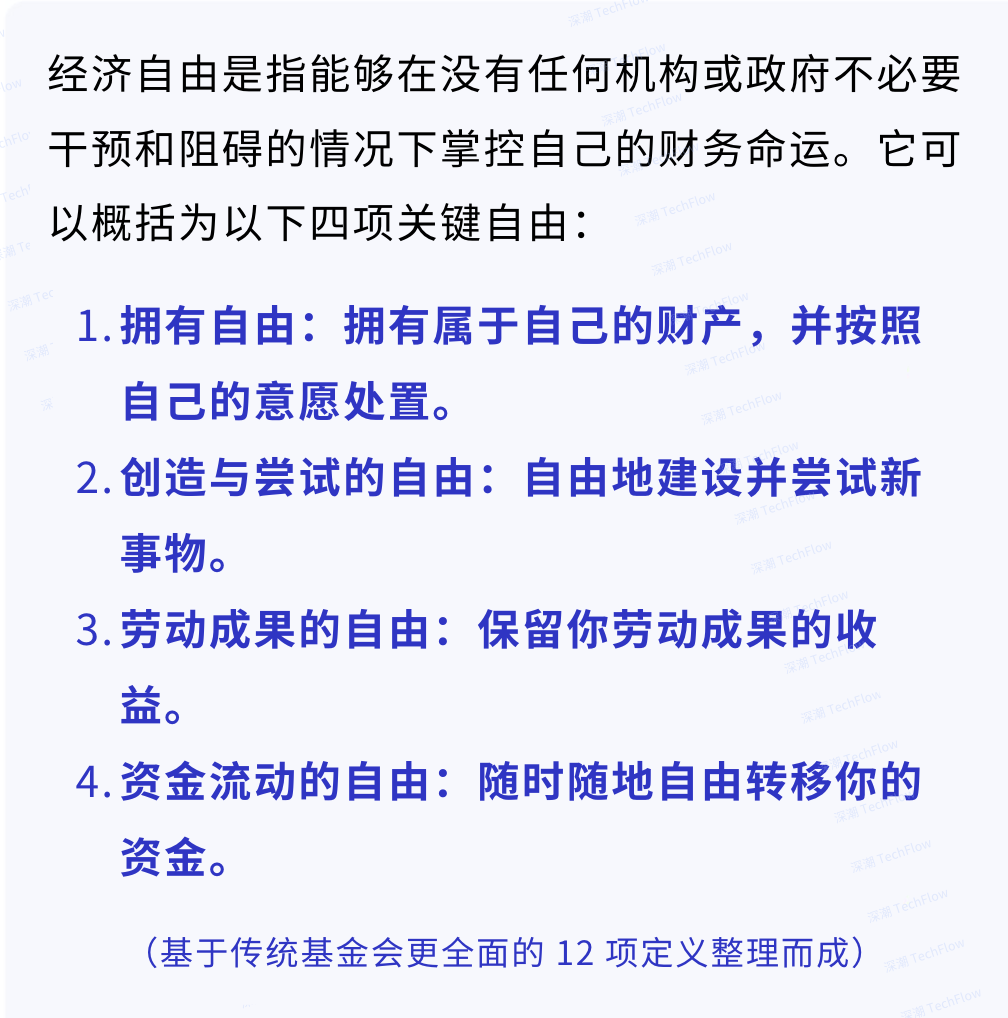
Original image from Brian Armstrong, compiled by Deep Tide TechFlow
According to our survey, more than three-quarters of adults worldwide express a desire for more economic freedom. This result is not surprising, as research shows that economic freedom not only enhances happiness but also improves literacy rates, environmental protection, and various other social indicators (this conclusion is supported by the World Bank, Pew Research Center, and World Economic Forum).
However, economic freedom is gradually declining globally, and many countries' economies remain constrained.
In the past 100 years, economic freedom had been on the rise, but this trend reversed in the early 21st century. Today, the average score of global economic freedom has dropped to its lowest level since 2001. The result is that the majority of economies worldwide are considered "mostly unfree" or even "repressed."
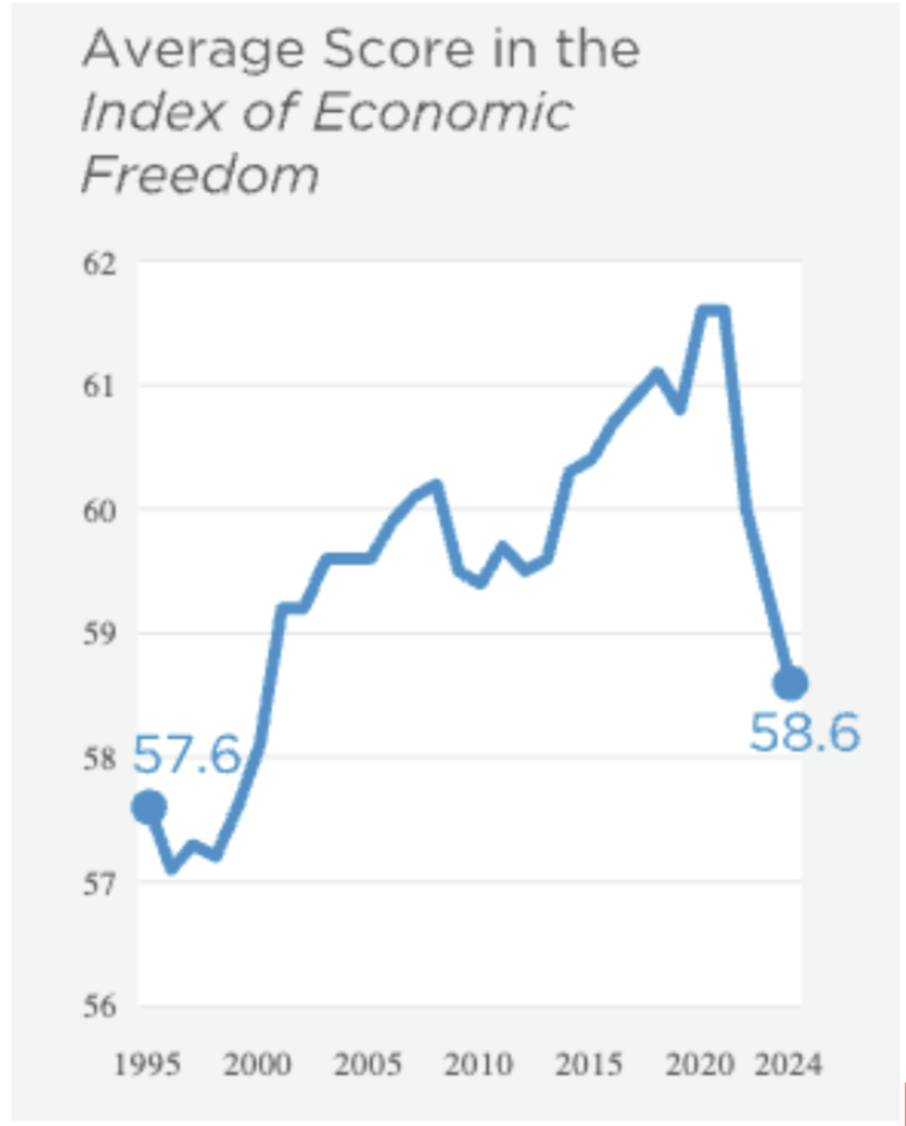
In the United States, this change means that living standards are declining, and many feel that the "American Dream" is now out of reach. Data shows that only 14% of Americans are optimistic about the future of the financial system. Globally, 70% of adults believe that their children may fare worse economically than their parents. The decline in economic freedom is gradually eroding people's trust in the financial system and economic institutions.
Why has the wave of socialism recently resurfaced? Why is this experiment repeatedly attempted? It seems that human nature is always easily attracted to socialism, and each generation needs to relearn it through difficult lessons. For some, this tendency may stem from a sincere desire to help others, but they do not realize that these policies actually harm the groups they are trying to assist. Others may exploit people's ignorance to seize power, or this tendency may arise from a deep-seated disdain for humanity or themselves.
Regardless of the reasons, history tells us that whenever humanity faces challenges, innovative solutions can always be found. From the printing press to the steam engine, from electricity to the internet—each technological breakthrough has reinvigorated economic vitality, provided people with more choices, and propelled the progress of civilization. And cryptocurrency will be the next chapter in this story.
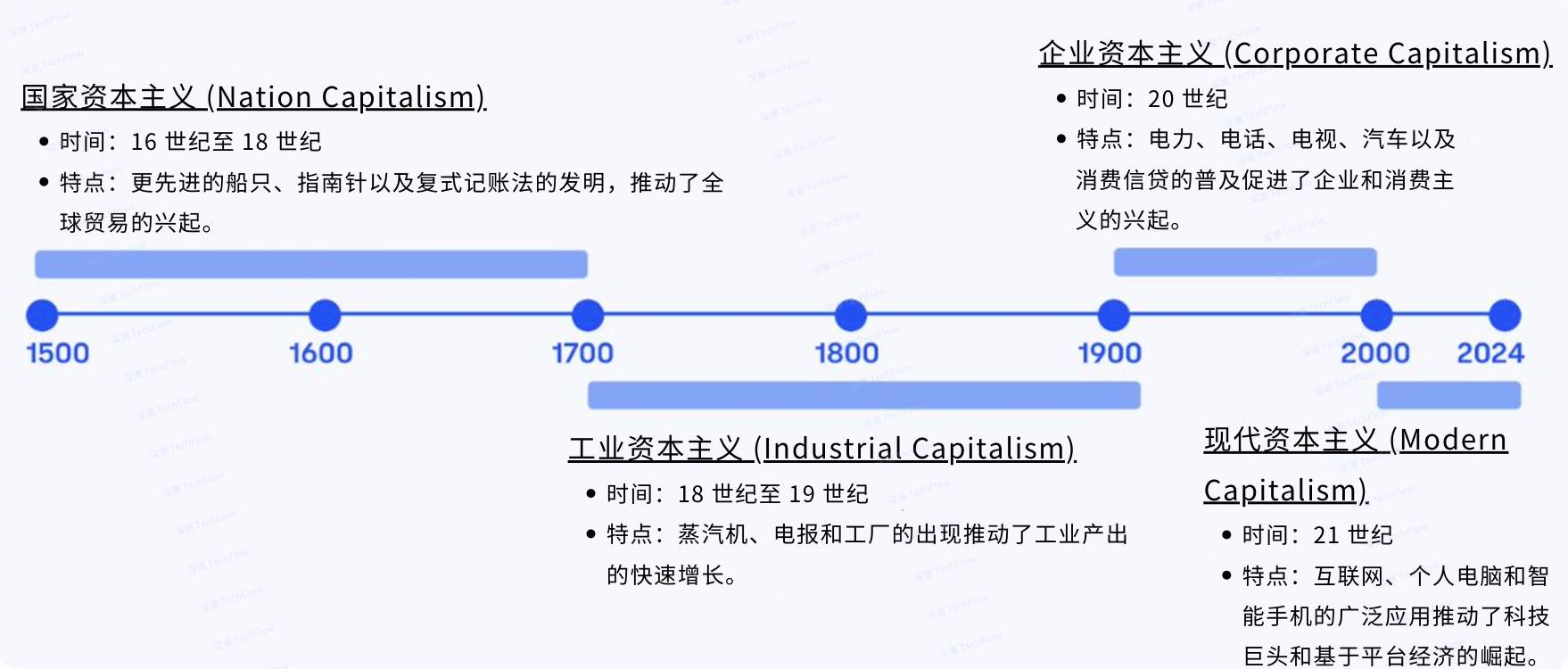
Original image from Brian Armstrong, compiled by Deep Tide TechFlow
Cryptocurrency can open a new chapter in capitalism: the era of economic freedom.
Coinbase's core belief is that widespread adoption and use of cryptocurrency can significantly enhance global economic freedom. This belief is based on the unique potential of cryptocurrency: to build a global economy driven by technology and people, rather than controlled by governments. In this system, anyone with internet access can participate, property rights are strongly protected, and the value of currency can be maintained over the long term. This is not an unattainable dream; cryptocurrency is bringing more economic freedom to people in today's real world:
Stable Currency: Stablecoins are becoming a revolutionary application in the cryptocurrency space, with trading volume increasing more than threefold year-on-year, reaching approximately $27 trillion. The use of stablecoins has expanded from mere transactions to people's daily financial lives, especially in emerging markets, where these regions are at the global forefront of stablecoin adoption. For example, in Argentina, 5 million people actively use cryptocurrency for daily payments, and in emerging markets, saving in dollars has become the second most popular application scenario for stablecoins.
Free Trade: Cryptocurrency, relying on a globalized network, breaks down the limitations of intermediaries and national borders, greatly promoting free trade. Layer 2 can now complete global transactions in less than 1 second, with fees as low as 1 cent, making cryptocurrency the only payment method that simultaneously meets the three characteristics of "fast, low-cost, and global." This technology unlocks unprecedented trade freedom for individuals and businesses. Compared to traditional payment services, cryptocurrency transfers are not only fast and cheap but also have no restrictions on transaction frequency or amount. According to a study by Visa, one of the main reasons people in Australia, Brazil, Germany, Hong Kong, South Africa, the United States, and the United Kingdom choose to use cryptocurrency is to enjoy transaction freedom and lower fees.
Property Rights: Cryptocurrency replaces courts or intermediaries with code and cryptographic technology, providing secure and enforceable protection for property rights globally. Currently, over 5 billion people (about two-thirds of the global population) lack proof of ownership for housing or land, and governments are trying to use cryptocurrency to address this issue. On the blockchain, ownership information cannot be tampered with, and smart contracts can automatically execute rights related to ownership, ensuring their protection. For example, Georgia has begun migrating land registration information to the blockchain, and Sweden is also testing a cryptography-based land registration system.
Free Access: Cryptocurrency is breaking down barriers and building a more inclusive global financial system. It not only allows people to retain more of their hard-earned wealth but also enables them to make better use of that wealth. Decentralized Finance (DeFi) is fundamentally changing the accessibility of financial services. It provides equal opportunities for anyone with internet access, whether they are entrepreneurs in remote areas or the approximately 1.4 billion people globally who lack banking services, allowing them to participate in the global economy.
Today, the adoption and use of cryptocurrency have reached a critical growth point. Currently, nearly 7% of the global population owns cryptocurrency, driven by the fact that people are using it to solve real-world economic problems.
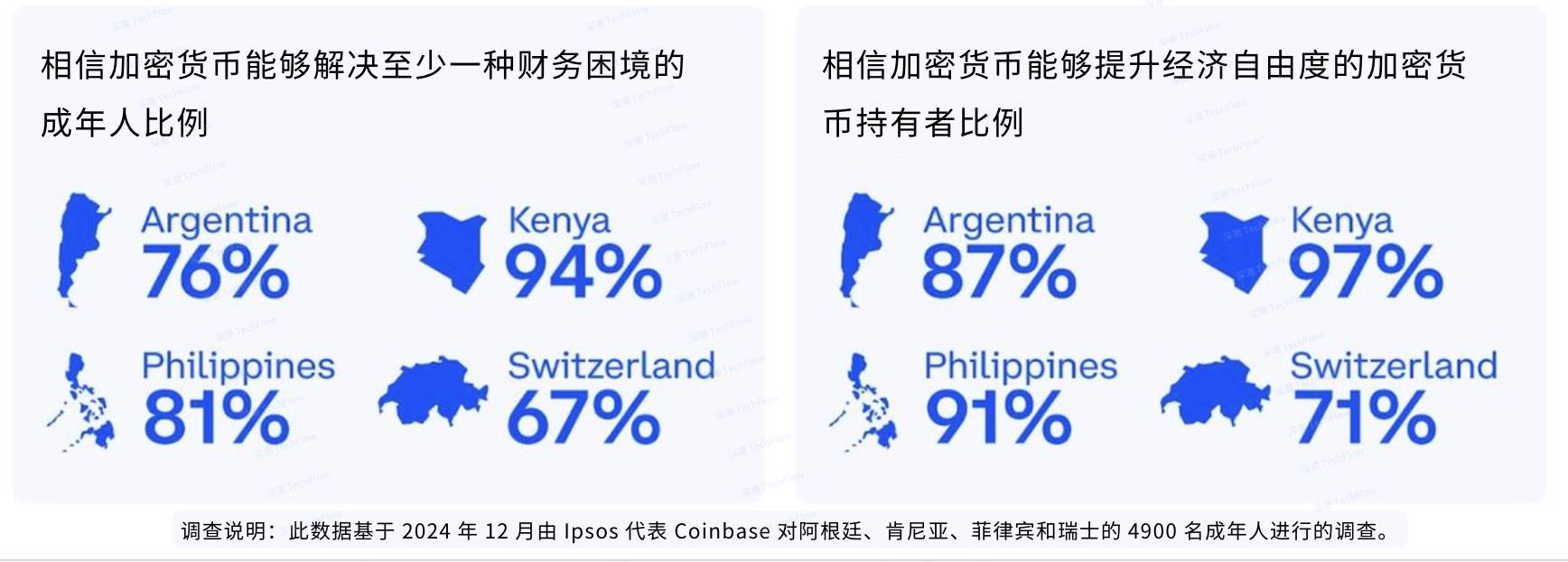
Original image from Brian Armstrong, compiled by Deep Tide TechFlow
How to Enhance Economic Freedom by 2025
Leaders and policymakers around the world: It is time to embrace cryptocurrency and technological optimism to promote economic freedom and human progress. This year, you can take the following four practical actions:
Create laws that support the thriving of cryptocurrency locally. Cryptocurrency is an emerging and unique technology that should not be constrained by outdated laws. Policymakers need to focus on establishing clear and forward-looking regulatory frameworks that encourage this innovation to develop locally rather than pushing it overseas. Otherwise, there is a risk of being left behind by the times.
Establish strategic Bitcoin reserves. Bitcoin has been the best-performing asset class since its inception and has gradually established its position as an important tool against inflation. Future global competition will focus on the digital economy rather than space exploration. Bitcoin may become the foundation of the global economy, much like gold, and play a significant role in the balance of power between nations. In a world where Bitcoin holdings can influence national power dynamics, governments will compete to build strategic Bitcoin reserves. This will not only consolidate and enhance their national economies but also secure a leading position in the digital age. Countries that fail to act in a timely manner may gradually lose competitiveness and foothold.
Support economic special zones that provide innovators the freedom to experiment with bold ideas. Through sandbox-like experimental and innovative models, a safe environment can be provided for innovators to learn and grow through practice. Historically, we have witnessed the success of this model in cities like Shenzhen and Hong Kong. New projects like Prospera, by embracing cryptocurrency, are expected to further accelerate the pace of innovation.
Enhance government efficiency. As shown by Argentine presidential candidate Milei and the exploration of cryptocurrency DOGE, we are re-recognizing that excessive government intervention often fails to effectively solve problems and can become the problem itself. No matter who you are or where you are, cryptocurrency can benefit you. Even if you do not directly use cryptocurrency-based financial services, you can still benefit indirectly. Cryptocurrency is becoming a grassroots "counterbalancing force" against issues such as authoritarian governments, excessive regulation, legal abuse, rising fiscal deficits, and stifled innovation.
The responsibility of everyone: Each of us has a responsibility to promote a new path of development, making innovators, technological innovation, and free markets the core driving forces of economic growth, rather than relying on government intervention. We should actively embrace economic freedom and promote a more open policy environment. The progress and prosperity of society depend on our collective efforts.
免责声明:本文章仅代表作者个人观点,不代表本平台的立场和观点。本文章仅供信息分享,不构成对任何人的任何投资建议。用户与作者之间的任何争议,与本平台无关。如网页中刊载的文章或图片涉及侵权,请提供相关的权利证明和身份证明发送邮件到support@aicoin.com,本平台相关工作人员将会进行核查。



